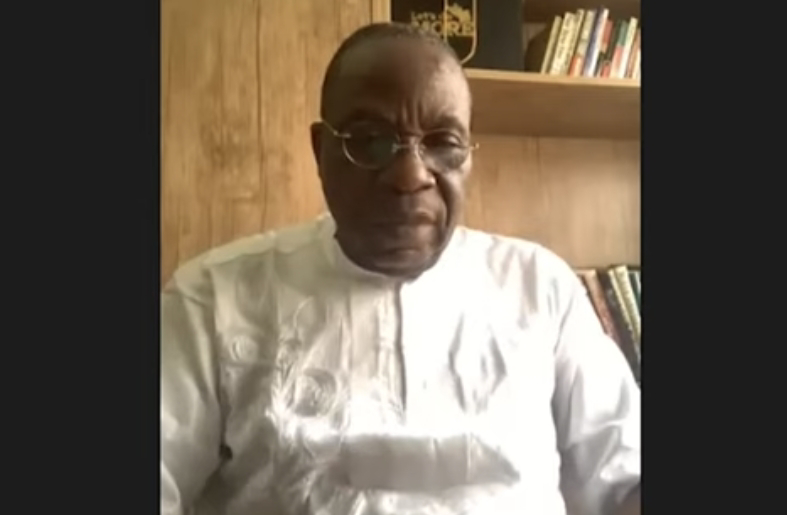In a scathing statement released on Monday, Salihu Lukman, the former Vice-Chairman of the All Progressives Congress (APC) in the North-West, did not mince words as he accused President Bola Tinubu of consistently making impulsive decisions since assuming office on May 29, 2023. Lukman, a former Director General of the Progressives Governors’ Forum, expressed concern that major policy decisions have been executed without clear plans, leaving Nigerians in the dark about the government's intentions.
Highlighting specific instances of what he deemed impulsive decision-making, Lukman pointed to the controversial removal of the subsidy on petroleum products, the floating of the Naira's exchange rate, and the sanctions imposed on Niger Republic following the coup on July 26, 2023. According to Lukman, it appears as if the government announces decisions before thoroughly considering the potential consequences and formulating a strategy to manage them.
Lukman argued that a lack of an articulated policy plan, aligned with the APC manifesto and Renewed Hope 2023, has resulted in the government being reactive rather than proactive in dealing with the challenges arising from its policies. He suggested that the government, under President Tinubu, has failed to anticipate and address the repercussions of its decisions.
Furthermore, Lukman raised concerns about the President's apparent detachment from the party's structures, asserting that only a select few party leaders have access to him. He criticized the prevailing notion that the President is omnipotent and beyond questioning, comparing the current era to the previous administration under President Buhari. According to Lukman, President Tinubu has gone a step further by nullifying zoning agreements within the party, specifically moving the position of National Chairman from North-Central to North-West without adequate consultation.
Lukman expressed disappointment with the increasing centralization of power within the APC, rendering its organs ineffective and consolidating the President's omnipotent status. He questioned the future of the APC, a party originally envisioned as progressive but seemingly producing governments in reverse gear.
The former APC Vice-Chairman pondered whether leaders within the party had become indifferent to its electoral fortunes and if such indifference signaled a lack of concern for the future of democracy in Nigeria. Lukman highlighted the glaring disparity between the promises made to Nigerians and the current reality, emphasizing that the economic hardships experienced during the first term of President Tinubu cast doubt on his commitment to seeking a second term.
In a striking critique, Lukman accused President Tinubu of managing governmental affairs like a military dictator, shutting down party structures, and addressing citizens with an air of absolute knowledge. He challenged the President's purported interest in a second term, questioning the apparent contradiction between seeking reelection and adopting an autocratic approach to governance.
In conclusion, Salihu Lukman's comprehensive critique raises serious questions about the direction of the APC under President Tinubu's leadership. As Nigerians grapple with economic challenges and political uncertainties, Lukman's analysis prompts a closer examination of the implications of impulsive decision-making and centralized power within the ruling party. The future of the APC and the broader democratic landscape in Nigeria may be at stake, as citizens question whether the promises made will ever align with the realities they face.
Highlighting specific instances of what he deemed impulsive decision-making, Lukman pointed to the controversial removal of the subsidy on petroleum products, the floating of the Naira's exchange rate, and the sanctions imposed on Niger Republic following the coup on July 26, 2023. According to Lukman, it appears as if the government announces decisions before thoroughly considering the potential consequences and formulating a strategy to manage them.
Lukman argued that a lack of an articulated policy plan, aligned with the APC manifesto and Renewed Hope 2023, has resulted in the government being reactive rather than proactive in dealing with the challenges arising from its policies. He suggested that the government, under President Tinubu, has failed to anticipate and address the repercussions of its decisions.
Furthermore, Lukman raised concerns about the President's apparent detachment from the party's structures, asserting that only a select few party leaders have access to him. He criticized the prevailing notion that the President is omnipotent and beyond questioning, comparing the current era to the previous administration under President Buhari. According to Lukman, President Tinubu has gone a step further by nullifying zoning agreements within the party, specifically moving the position of National Chairman from North-Central to North-West without adequate consultation.
Lukman expressed disappointment with the increasing centralization of power within the APC, rendering its organs ineffective and consolidating the President's omnipotent status. He questioned the future of the APC, a party originally envisioned as progressive but seemingly producing governments in reverse gear.
The former APC Vice-Chairman pondered whether leaders within the party had become indifferent to its electoral fortunes and if such indifference signaled a lack of concern for the future of democracy in Nigeria. Lukman highlighted the glaring disparity between the promises made to Nigerians and the current reality, emphasizing that the economic hardships experienced during the first term of President Tinubu cast doubt on his commitment to seeking a second term.
In a striking critique, Lukman accused President Tinubu of managing governmental affairs like a military dictator, shutting down party structures, and addressing citizens with an air of absolute knowledge. He challenged the President's purported interest in a second term, questioning the apparent contradiction between seeking reelection and adopting an autocratic approach to governance.
In conclusion, Salihu Lukman's comprehensive critique raises serious questions about the direction of the APC under President Tinubu's leadership. As Nigerians grapple with economic challenges and political uncertainties, Lukman's analysis prompts a closer examination of the implications of impulsive decision-making and centralized power within the ruling party. The future of the APC and the broader democratic landscape in Nigeria may be at stake, as citizens question whether the promises made will ever align with the realities they face.
Tags
Nigerian Politics

